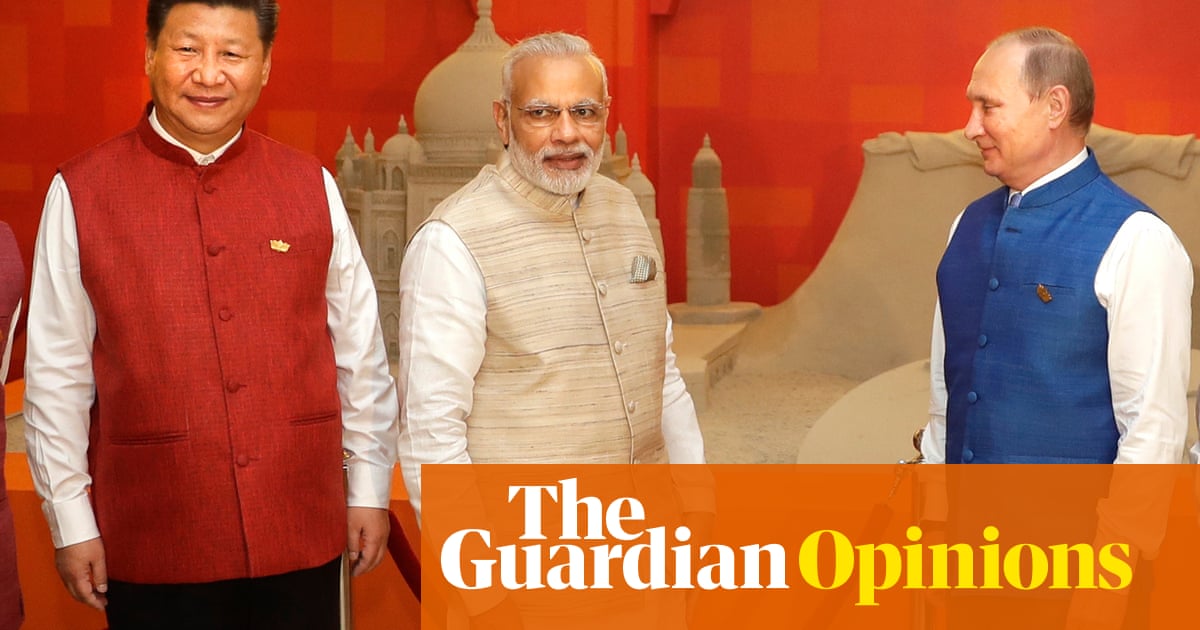
Short Url
https://arab.news/c3pwu
As the coronavirus disease (COVID-19) pandemic continues to challenge governments around the world, it is influencing relations between countries and perceptions of power. Speculation that the global order established after the Second World War is eroding or even dying has long predated the pandemic. However, pandemics are one of the types of disruption that can contribute to historic change, so the spread of COVID-19 has increased the likelihood of significant changes to the global geopolitical system.
Global orders seldom change overnight. Even when a system appears to change quickly, such as after the Second World War, the new system often draws on ideas that have been circulating for years or generations, and often builds on some institutions that previously existed, even while tearing others down. Today, it is plausible that the postwar global order will survive with some ongoing adaptations. It also is plausible that it will gradually morph into a new global order, with change driven over a number of years and several disruptive events. A less likely but still plausible scenario is that the existing system, under strain for a long time, suddenly collapses in the face of a disruptive event, such as war, economic collapse, environmental catastrophe — or a pandemic.
The current pandemic is driving two opposing reactions. Many states have enacted policies such as border closures to try to stop the spread of disease, while nationalism has, in some places, increased. Some governments are considering ways to bring supply chains back within their borders to reduce reliance on other countries for medicine, personal protective equipment, and more. At the same time, the pandemic highlights the global nature of many problems and the need for countries to cooperate to address threats that can affect everyone. So, will the pandemic drive a retreat from globalization or enhance multilateral institutions and cooperative behavior?
A new study from the Center for Strategic and International Studies, “After Disruption: Historical Perspectives on the Future of International Order,” notes that past changes in world orders have tended to be messy. They often build on ideas and experiences that predate the change by years. They involve the voices of many different states and non-state actors. They have inherent contradictions and compromises between competing actors. They are often based on a pragmatic awareness of mutual interest as much as or more than any ideals. As the report notes, “Ordering is not always architecture: Practical problem solving can produce order.”
Seen in a historical light, the apparent contradiction between the pandemic driving both nationalist responses and cooperative regional and global responses makes sense and is nothing new. The pandemic will not fully unwind globalization — a process that is deeply entrenched in our modern existence. The pandemic could increase nationalist responses and multilateral action at the same time, as different governments try to balance their interests and respond to their domestic political environments.
Will the pandemic drive a retreat from globalization or enhance multilateral institutions and cooperative behavior?
Kerry Boyd Anderson
The pandemic is the type of disruptive event that presents an opportunity for those who seek change or want to influence the global order. It is an opportunity to address global problems and flaws in the existing system. It also is also an opportunity to adapt to major changes that have occurred since the last major changes to the global order, including technological, economic, social, and environmental changes. It is an opportunity to adjust the geopolitical order to better reflect shifts in economic, military, cultural, and demographic influence.
The pandemic is also the type of disruptive event that presents risks. New global systems do not always survive and they can even lead to something worse. Efforts to create a new order after the First World War, for example, failed badly in their overall goal of preventing another massive modern war. No system will ever please everyone or solve all problems, but some are more successful than others.
The pandemic presents a moment for those who want to shape a new or revised world order. States that want to play a significant role in influencing future world politics can use this time to develop the type of soft power and reputation that are important for both large and small states to gain influence. The pandemic has undermined both China and the US’ soft power, as Beijing is widely seen to have poorly handled the early stages of the pandemic, while many people around the world see Washington’s domestic response as failing. Other countries that have managed the pandemic well so far, such as South Korea, Germany and New Zealand, could gain soft power that boosts their voices in shaping future world politics.
Hard power based on resources such as military, demographic and economic assets also still matters in determining who shapes the global order. However, durable systems do not rest only on the support of a few powers; rather, they include buy-in from many medium-sized or smaller states and non-state actors. While powers such as the US, Russia, and China might want to force a global order to fit their interests, they must make compromises with other major powers and persuade others to support the institutions and norms that underpin modern global systems. With power more diffused around the world than in the past, this is more important than ever.
• Kerry Boyd Anderson is a writer and political risk consultant with more than 16 years’ experience as a professional analyst of international security issues and Middle East political and business risk. Her previous positions include deputy director for advisory with Oxford Analytica and managing editor of Arms Control Today.
Twitter: @KBAresearch
Disclaimer: Views expressed by writers in this section are their own and do not necessarily reflect Arab News" point-of-view












